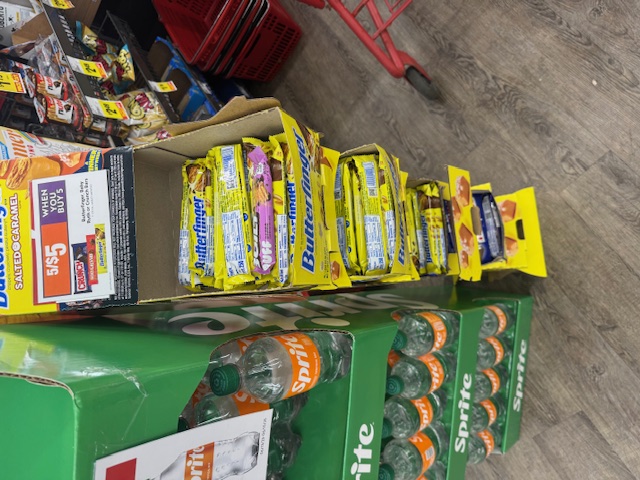Consistency over perfection isn’t just a cliché—it’s the foundation of sustainable fitness and real results!
I was standing in line at my neighborhood grocery store when I spotted it: a lone protein bar tossed on top of a tower of Butterfingers. Right before check-out, temptation struck and someone swapped progress for a quick sugar fix.
It captured a universal truth about fitness and nutrition: consistency over perfection is what builds real results, one small choice at a time.

Progress is cumulative
Nobody wakes up overweight after one indulgent day, and nobody wakes up shredded after a single workout. Our bodies are simply scorekeepers of thousands of micro-decisions. The good news? Because change happens gradually, you don’t have to be perfect—just consistent.
The math – why “good enough” still wins
Consider this weekly scenario:
| Day | Calorie Balance |
| Mon-Sat | -500kcal deficit each day |
| Sunday | +500kcal surplus (party, cravings, life) |
Weekly total: –2,000 kcal
You still lose roughly half a pound of fat even after that splurge. Compare that with a “perfect” –3,000 kcal week that burns you out and triggers a multi-day binge later. Long-term, the sustainable 2,000 kcal weekly deficit outruns the boom-and-bust cycle every time.
Practical tips for staying consistent
Aim for 80% compliance
Five to six days on the plan, but allow for one or two flexible days as well. Progress thrives on repeatability, not rigidity.
Zoom out
Judge success by weekly or monthly trends—weight, measurements, strength—not a single bad day.
Plan the “imperfect”
Schedule celebratory meals or social events in advance. By making them part of the plan, you remove guilt and keep momentum.
Reflect, don’t regret
When you slip, note what happened, learn, and move on. Data without shame turns missteps into insight.
Your next small choice
The stranger who ditched that protein bar didn’t “fail”—they just made one decision. The race isn’t lost at the checkout aisle, and it isn’t won in a single workout. The next choice matters more than the last mistake. Stack your bricks, choose consistency over perfection, and let time do the heavy lifting.



